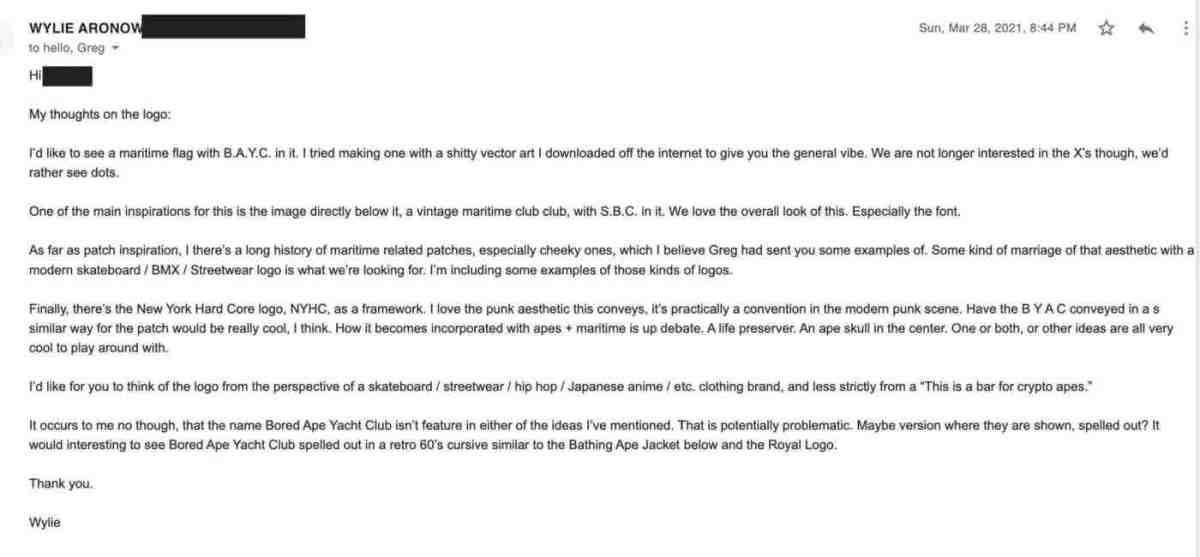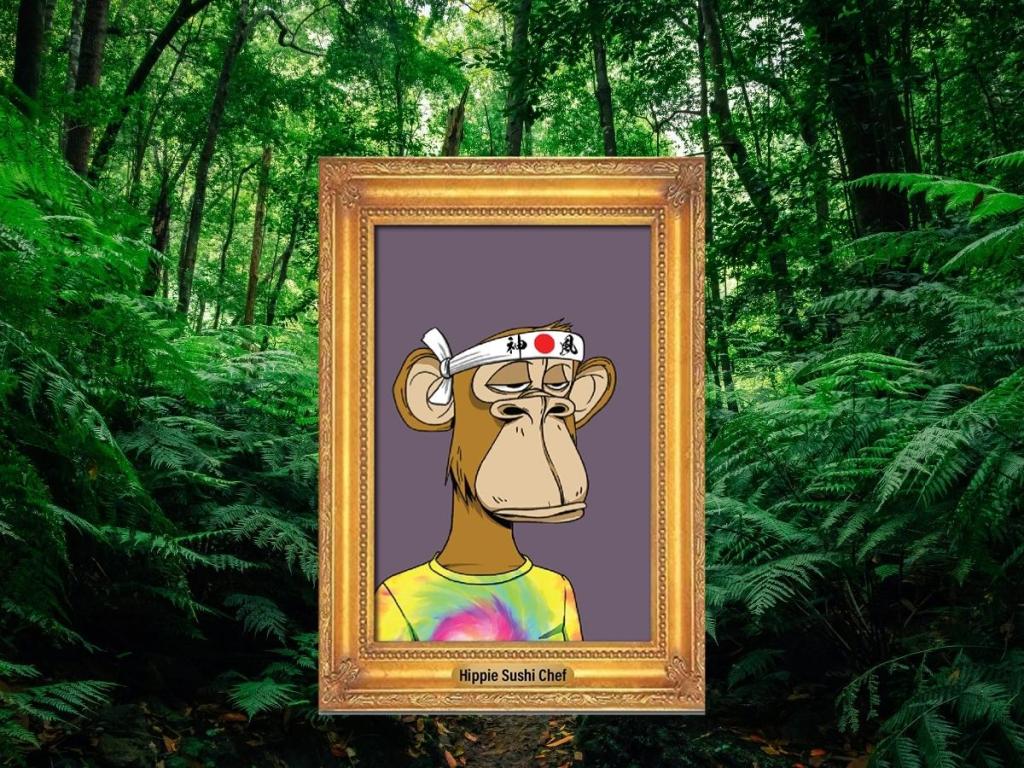People love to hate on NFTs. And what better NFT collection to hate than the Bored Ape Yacht Club (BAYC)?
BAYC has earned itself quite the reputation, most notably as the face of the NFT craze which saw Ape prices reach $500,000 a piece at the height of the January’s market hysteria. Today, a single Bored Ape still commands a price tag of around 80 ETH (US$107,000), which to the uninitiated still seems like an absurd amount of money to pay for a “jpeg”.
Quite recently, the once revered hacktivist collective ‘Anonymous’ uploaded a video that attempted to claim that BAYC founders were in fact, openly racist and anti-semitic.
But like all things Web3, there’s a lot more to these cartoon primates than meets the eye, something that broad brush-stroke critics would do well to understand.
One such critic is O.C. Ripley, who recently penned a confused but seemingly well-intentioned OpEd on Cointelegraph, urging people to “throw their Bored Apes in the trash” because there are “better” use cases for NFT technology.
BAYC Criticism
Ripley criticises Bored Apes for distracting the mainstream from the real utility of NFT technology and “giving ammo to critics”. Ironically, the same piece he wrote to raise the status of NFTs was a hit with prominent crypto-critic Molly White, who uploaded screenshots of Ripley’s wandering argument to her Twitter with a simple and incisive: “lol”.
Now, it would be pointless to argue that Bored Apes don’t symbolise excess to some degree, but that’s bound to happen when you allow anyone to buy into a project. It’s a blunt fact that in a project open to anyone, there will be both good and bad actors.
NFTs are more than pricey pictures
Speaking to The Chainsaw, an anonymous member of BAYC known as ‘Van’ or ‘BAYC #5472‘ describes NFT communities like BAYC as “super connectors” that allow people with unique interests and deep passion for real-world work to be connected with thousands of enthusiastic, like-minded people.
“BAYC has opened doors and fostered instant connections with other Apes. Everyone is interested in what you’re doing because you’re part of this family. And when someone in the family succeeds, everyone celebrates,” they said.
Van, who is currently living in Costa Rica says that they and a few other “Apes” are doing conservation work on Howler monkey habitats, which they said aligns extremely well with Yuga Lab’s contributions to the Jane Goodall Foundation through the ApeCoinDAO.
“We have several Yuga asset holders here locally, we’re actively volunteering with and sponsoring activities with The Clean Wave, a nonprofit that’s been executing community impact projects here in Tamarindo.”
“The Clean Wave is also collabing with SalveMonos on the ‘monkey bridges’ project. Bridges are necessary because otherwise the howlers will use power lines to get around, which as you can imagine leads to some tragic results,” Van added.
Yuga Labs
In March of this year Yuga labs announced that they would contribute 10 million ApeCoin tokens over the next 3 years to the chimpanzee conservation-focused Jane Goodall Foundation. Prominent Bored Ape tropoFarmer ran the numbers on the ApeCoin-based philanthropy for his 150,000 followers on Twitter.
Tropo showed that the BAYC project’s subsidiary financial organisation, the ApeCoinDAO had (at current prices) been donating roughly US$1.6 million each month to the Jane Goodall foundation.
Acknowledging that while donations are impressive, Van added that the work of individual members within the NFT community is what truly aligns and drives the real-world impact from the Web3 space.
“I met Rich from Orangutan Outreach at ApeFest. He’s already out there doing the work and using the Ape IP for philanthropic good. There are other projects bubbling that aren’t quite ready to be revealed yet.”
“It’s hard not to be bullish on change making in Web3 with all the activity.”
Bored Apes and community
When asked exactly what it was about the BAYC community that enabled them to do good work IRL, Van said that there’s something fundamentally magnetising about an environment where total strangers can come together and bond over their passions.
“There was something magnetising about the pure WAGMI ethos. That ‘let’s find a way to help each other’ mentality is abundant among many of us,” Van said.
“If you meet someone else with Ape merch on, you instantly want to talk to them and be friends. You’re like this person gets it, or gets me. Where else does that exist? That level of blind trust and camaraderie,” they added.
Van acknowledged that while certain members of BAYC use their wealth and status to “flex” and throw money around, it’s far from the most important aspect of the project.
“There is this common narrative that BAYC is an elitist club of rich snobs or people who think they’re better than everyone else. Will there be bad actors? Sure.
But it’s far from the only one that exists. Another narrative that would be cool to see emerge is the embodiment of the influence of the web3 community,” they said.
“The ecosystem has evolved so much in such a short time. Our community is growing. More Yuga assets, Otherdeeds and ApeCoin are opportunities to onboard new people. AIP and Jenkins the Valet are proof of concept that governance can be done by a group of internet strangers with common goals and values.”
Are Bored Apes really racist?
A recent video which surfaced on September 27 from hacktivist collective Anonymous sought to stain the reputation of Yuga Labs, the company responsible for the creation of BAYC.
It’s worth noting that the video itself didn’t actually surface any new claims, it simply regurgitated pre-existing information that had already been rebutted by the founders of Yuga Labs in a detailed Medium post.
“We’ve become the target of a crazy disinformation campaign accusing us — a group of Jewish, Turkish, Pakistani, and Cuban friends — of being super-secret Nazis,” wrote Yuga Labs co-founder Gordon Goner (real name Wylie Aronow).
Most of this information comes from a prominent BAYC critic Ryder Ripps. In a lengthy post on a website named after one of Yuga Labs’ co-founders ‘gordongoner.com’, Ripps claims that the very structure of Yuga Labs is inherently racist and anti-semitic. One such example is that the ape skull in the BAYC logo is a rip off a Nazi ‘Totenkopf’ emblem.

However, screenshots of the email chain shared by the founders shows that the logo is very much inspired by skating culture, hip hop and Japanese anime.

Obscure
The racism claims rely on obscure references to hyper-specific details in the NFT collection’s artwork, the founders’ choice of pseudonym, and even mentions from social media posts from family members of the founders.
For example, Ripps claims that the use of the word “cowabunga” in the Instagram bio of co-founder Garga’s wife is damning evidence of a coded dog whistle to the alt-right.
Like all good conspiracy theories, many of Ripps’ claims seem semi-plausible at glance, but under further examination they require consistent and increased efforts in ‘whataboutism’ to hold as valid.
Like it or not, BAYC and the wave of NFT projects they stand at the front of, are shaping the worlds of culture and finance in a way that cannot be understated. Whether it’s Snoop Dogg & Eminem performing as their apes in a digitally-integrated concert in the metaverse, or Paris Hilton and Jimmy Fallon sharing pictures of their NFTs in front of one and half million people — it should be obvious that there’s something going on here that can’t be hand waved away as “just another fad”.





